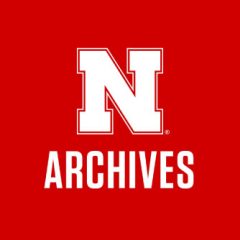Journalism in Action: Beverly Deepe Keever and Her Career
Archives & Special Collections, University of Nebraska-LincolnReturn to America
Beverly Deepe Keever left Vietnam in January 1969 and returned to her home country. Keever continued her career in journalism for a time with the Capitol Hill News Service. In the 1970s, she began her academic career, teaching journalism to students of Northwestern University and University of Maryland.
Marriage and Departure from Vietnam
Beverly Keever (nee Deepe) first met Charles “Chuck” Keever when he escorted her around the Da Nang Air Base. Charles Keever was a Harvard Law graduate from Hutchinson, Kansas, who was serving as a Civic Action Officer in the III Marine Amphibious Force. His goal to make the lives of Vietnamese farmers better won Beverly over, and they began dating. In 1969, Charles and Beverly decided to leave Vietnam to get married. They were married on Valentines Day, 1969 (exactly 7 years since Keever had first arrived in Saigon), in Belvidere, Nebraska, not far from where Beverly had grown up.
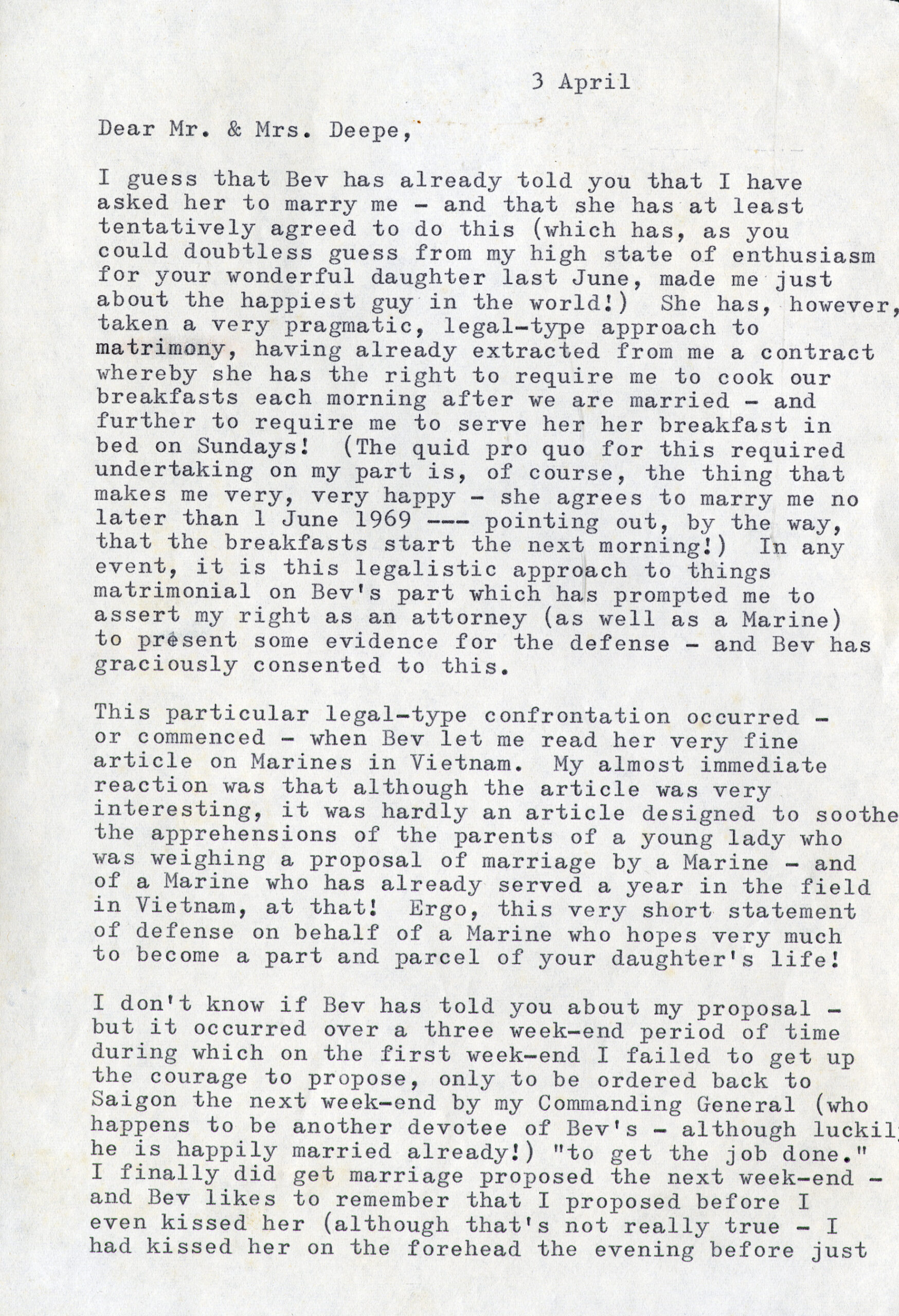
Letter from Chuck Keever to Beverly's family
Chuck and Beverly often met in Saigon when Chuck had time off or when he was on Saigon business trips. In April of 1968, Chuck proposed to Beverly, and she agreed on the condition that he made her breakfast in bed once a week. In this letter written to Beverly’s family, Chuck describes the proposal, their wedding plans, and how he fell in love with Beverly.
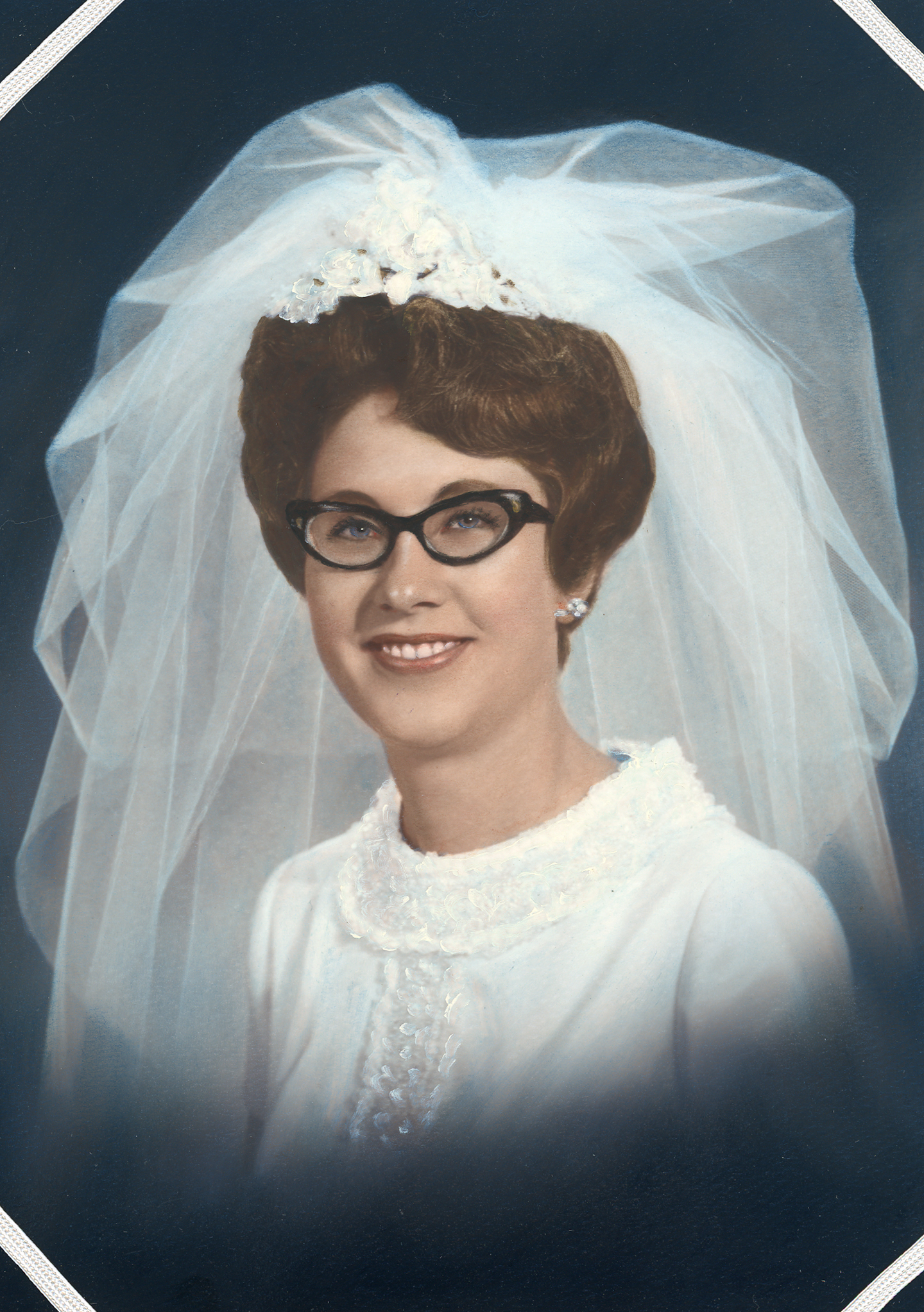
Beverly Keever's wedding photo
Beverly prepared for the wedding at her parent’s home in Belvidere, Nebraska. She and Chuck married on Valentine’s Day, 1969.
Washington D.C. Reporting
The early years of Charles and Beverly Keever’s marriage were hectic and unsettled. In 1974, not long after their marriage, Charles Keever was called back to Vietnam, so Beverly decided to take a job in Washington, D.C. with the Capitol Hill News Service. In 1975, with the fall of Saigon, Vietnamese refugees started making their way to the US. Keever took in the wife and 4 sons of her colleague and translator Phạm Xuân Ẩn. Keever did not know it at the time, but Ẩn was a spy for North Vietnam, and in Vietnam he was being accused of being corrupted by his many years with Westerners. Ẩn eventually decided to call his family back to Vietnam.
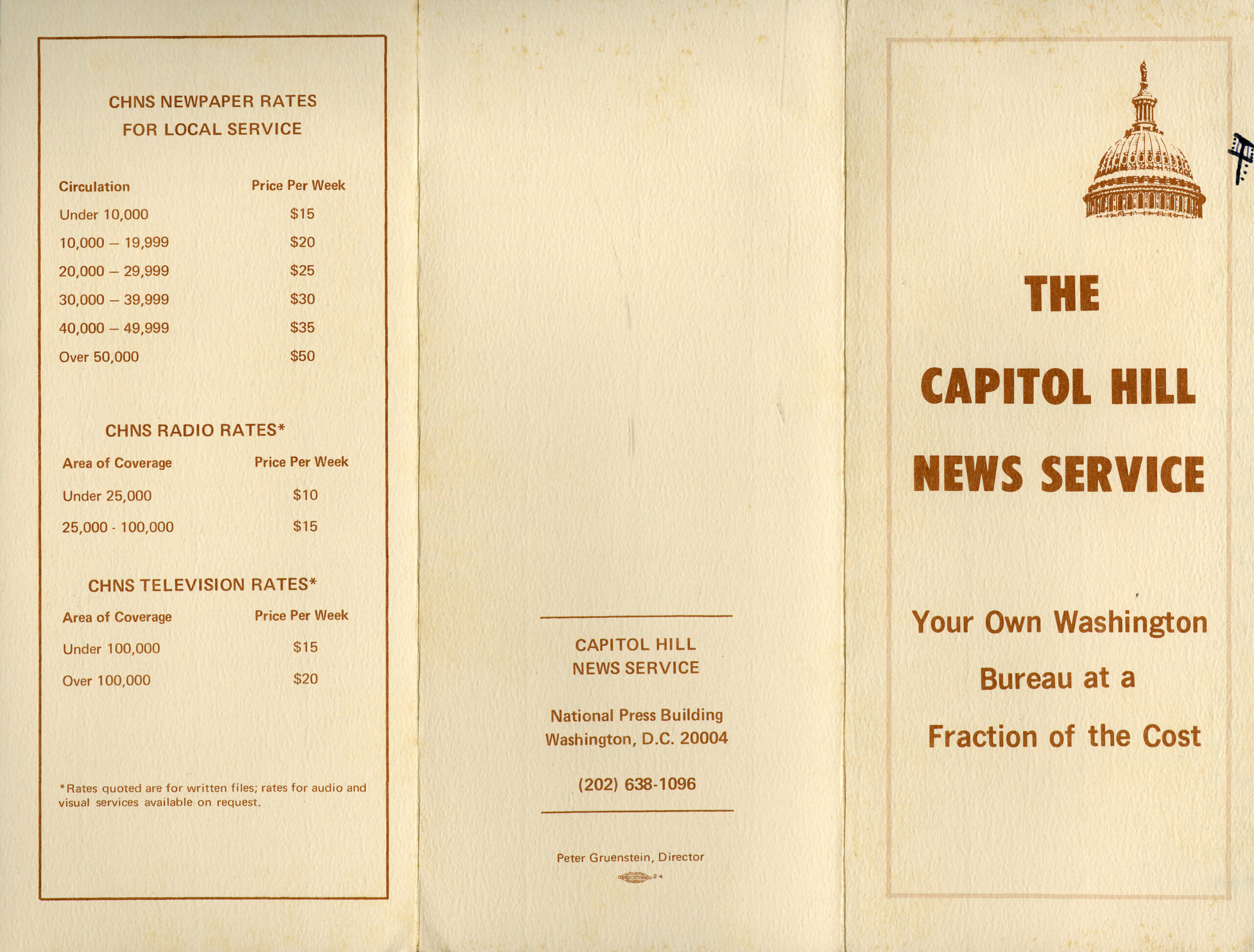
Capitol Hill News Service, 1974
The Capitol Hill News Service, like the AP, did not have their own newspaper. Rather the Service wrote articles about the U.S. legislature and then sold their stories to local papers. This pamphlet from 1974 was used to sell their services to other news agencies. To see the full pamphlet, click here.
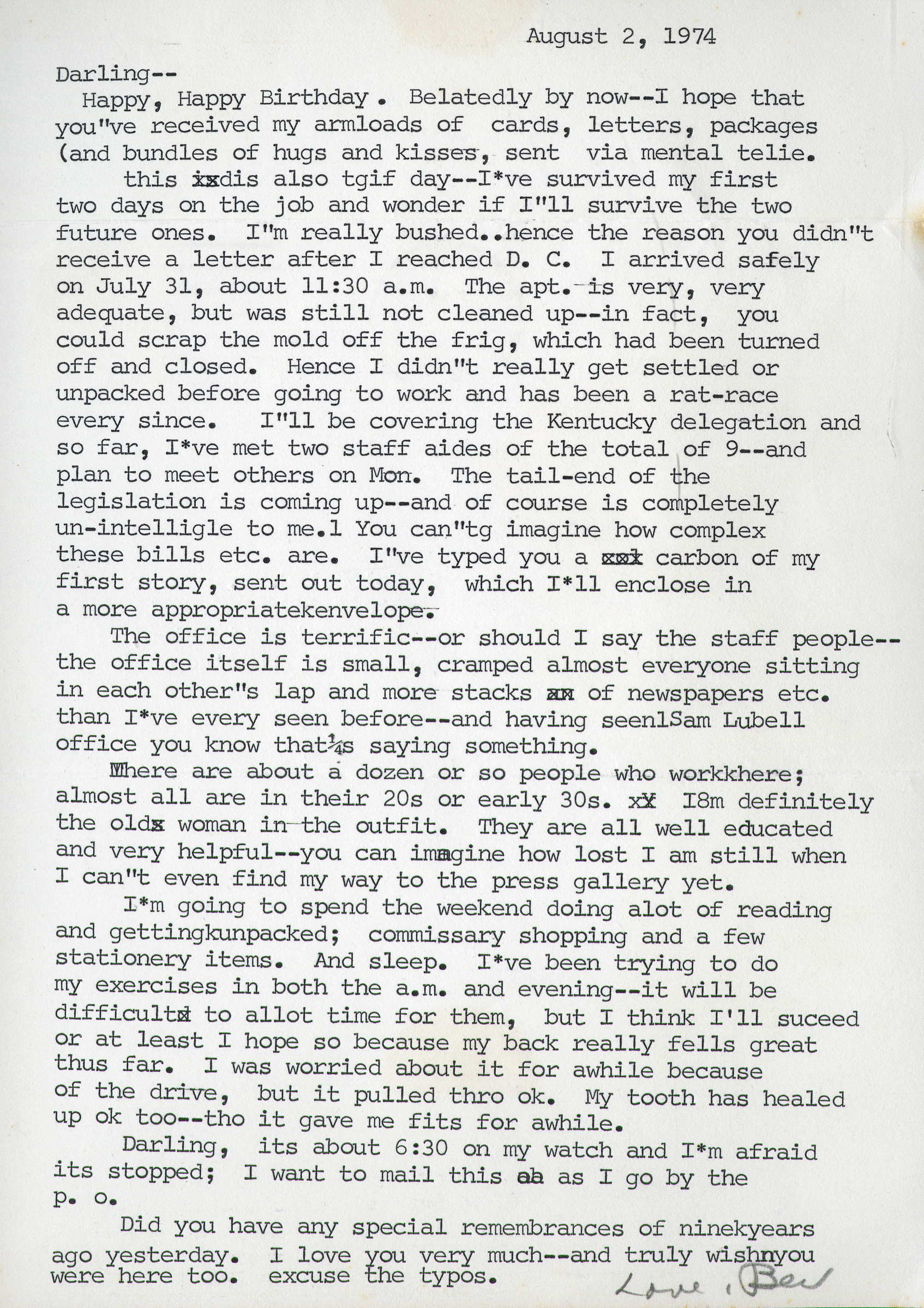
Keever starts work at the Capital Hill News Service
Keever moved to Washington, D.C. in August 1968 and lived in a small barely-furnished apartment. Keever described her new job and her apartment to Chuck in this letter.
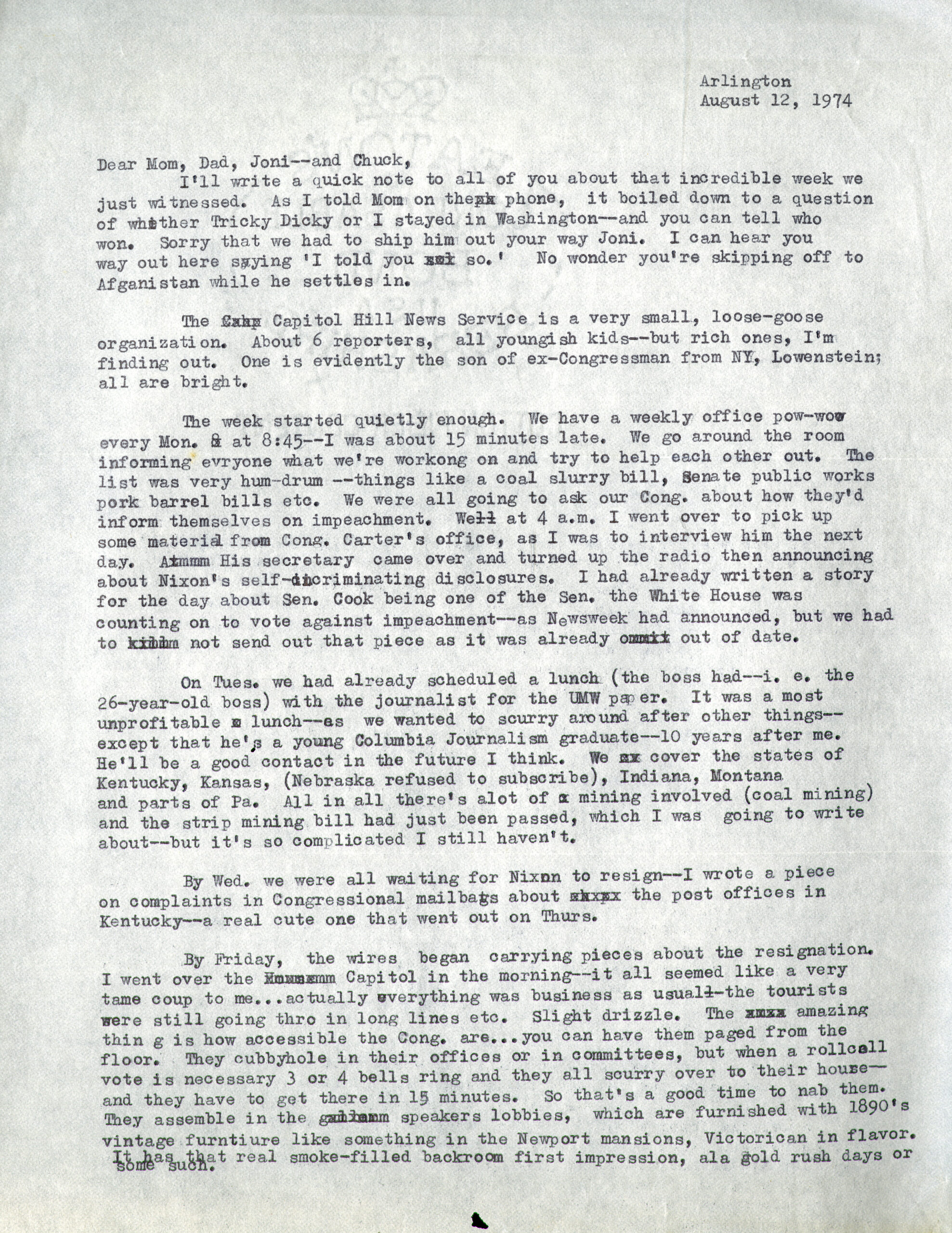
Keever describes working in Washington, D.C.
In this letter from August 1974, Beverly Keever tells her parents and sister about what it is like to work at the Capitol Hill News Service and the difficulty of covering media-savy Senators. She also discusses the resignation of President Nixon (“Tricky Dicky”), the biggest news in the U.S. that month.
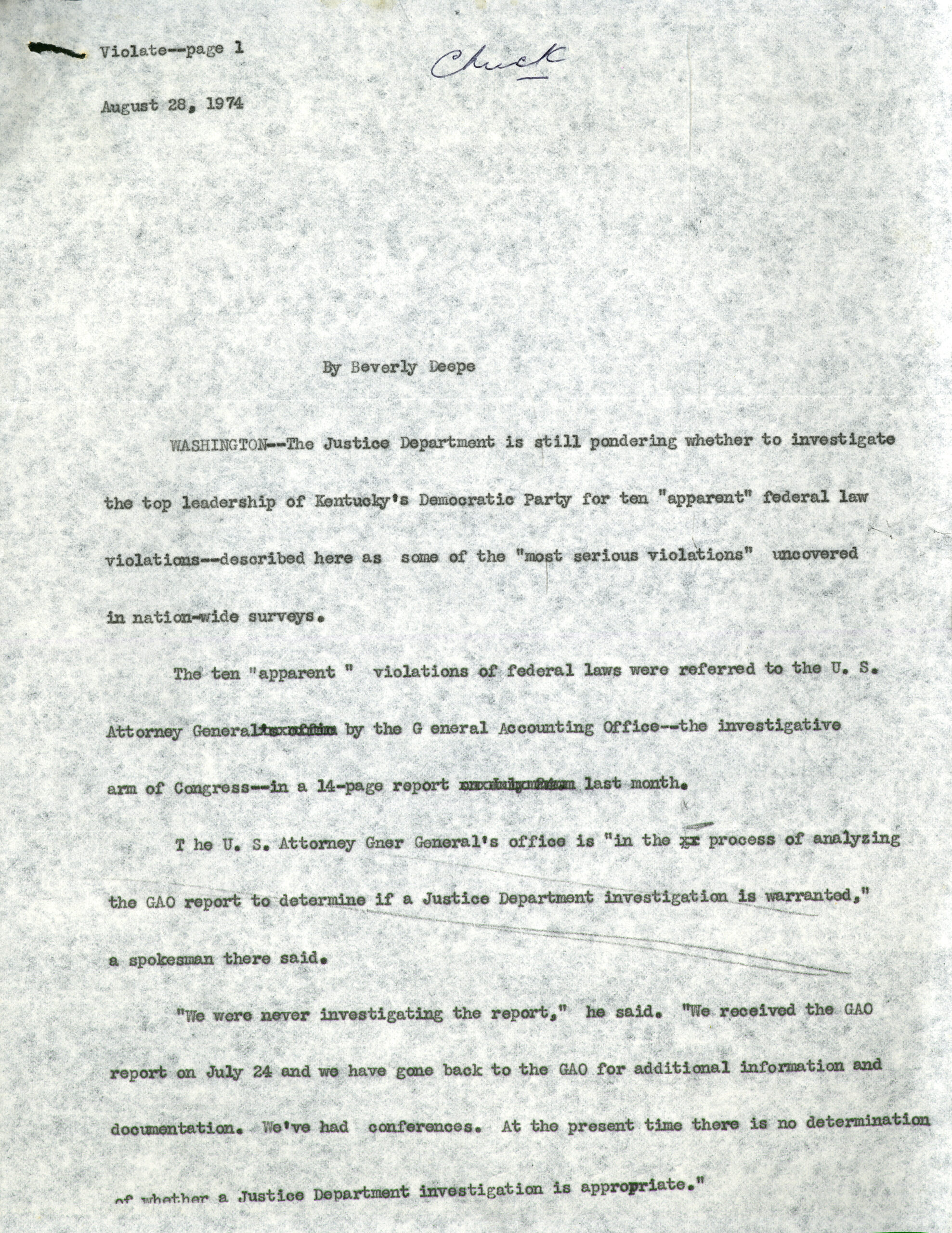
Article on Kentucky Senators
At the Capitol Hill News Service, Beverly Keever was tasked with covering the Kentucky Senators. In letters to Chuck she often complained how much mining legislation she had to cover, but every so often she got to cover interesting topics. This article is about a Department of Justice investigation into election financing violations by Kentucky Democrat Senators, August 1974.
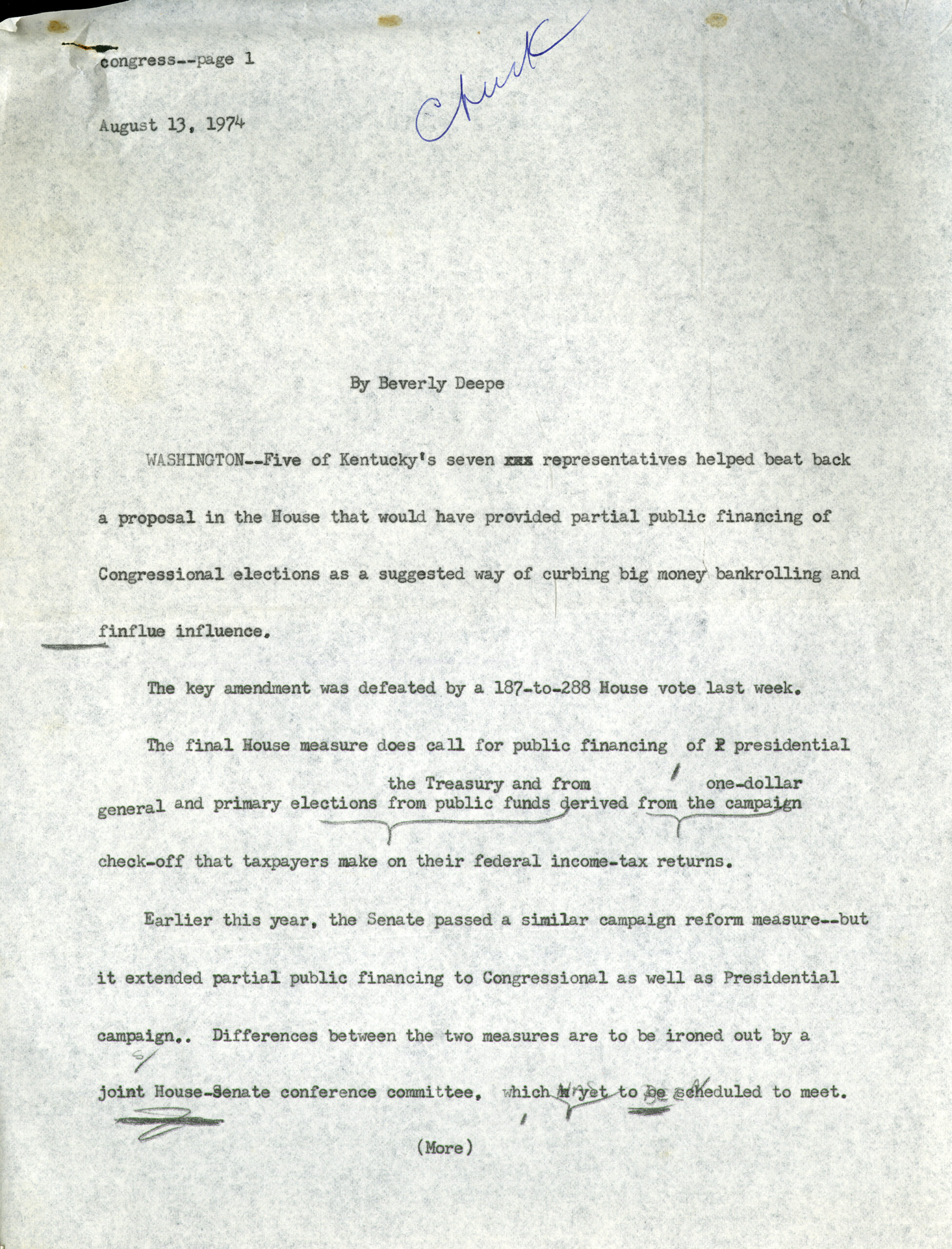
Article on Election Funding
This article by Beverly Keever covers how Kentucky Senators blocked legislation that would have put public funds toward election financing, so that candidates would be discouraged from taking lobbyist money. Written for the Capitol Hill News Service, August 1974.
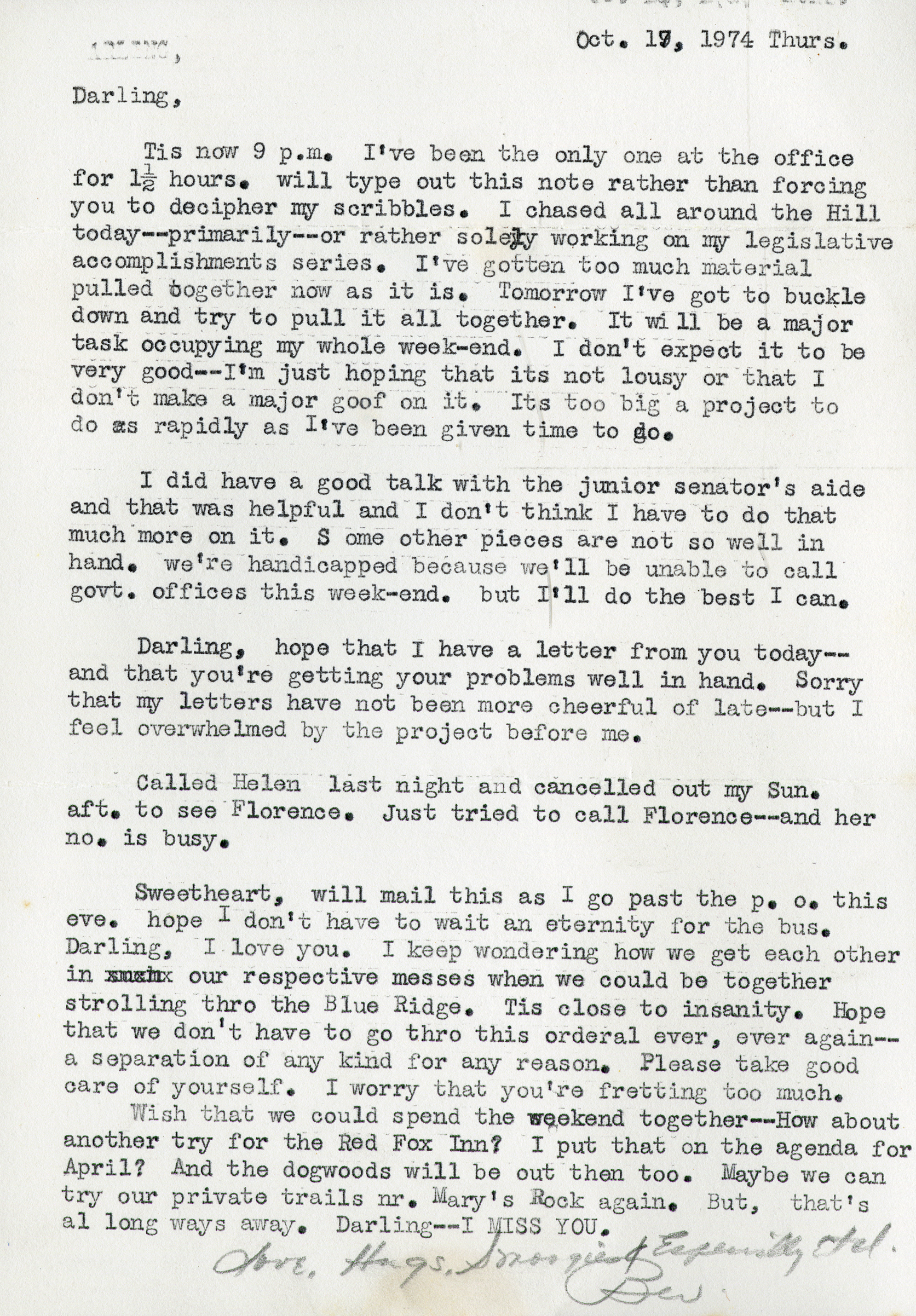
Keever continues to cover Kentucky Senators
By the Autumn of 1974, most of Keever’s letters to Chuck document day-to-day life as a journalist in Washington, D.C. This letter from October 17, 1974 discusses the difficulties of their long-distance relationship and her work with Capitol Hill News Service covering Kentucky senators.
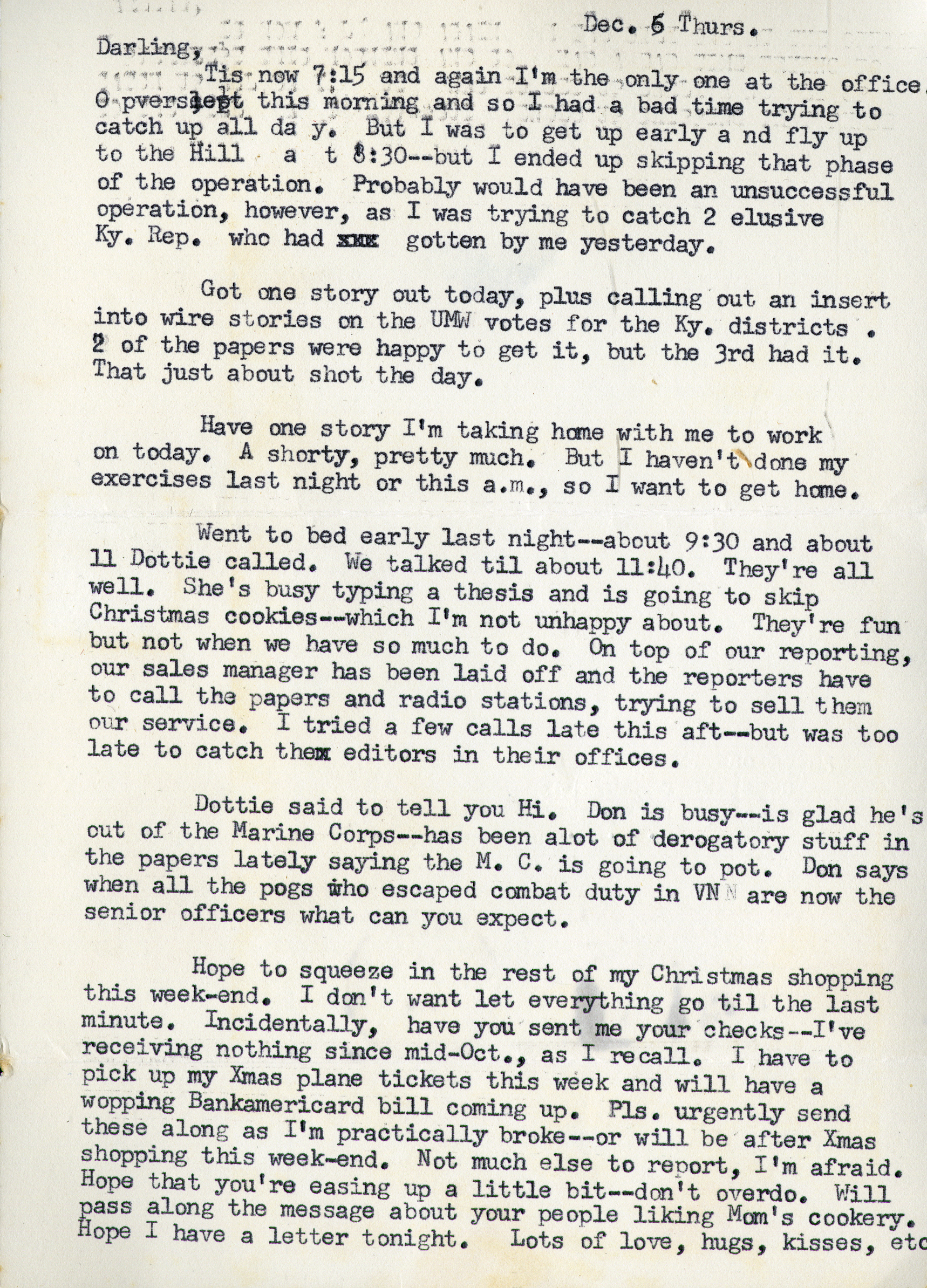
Keever writes about day-to-day life
This letter from Beverly Keever to Chuck Keever from December 1974 discusses work, friends, negative news coverage of the Marine Corps in Vietnam, and Christmas gift shopping.
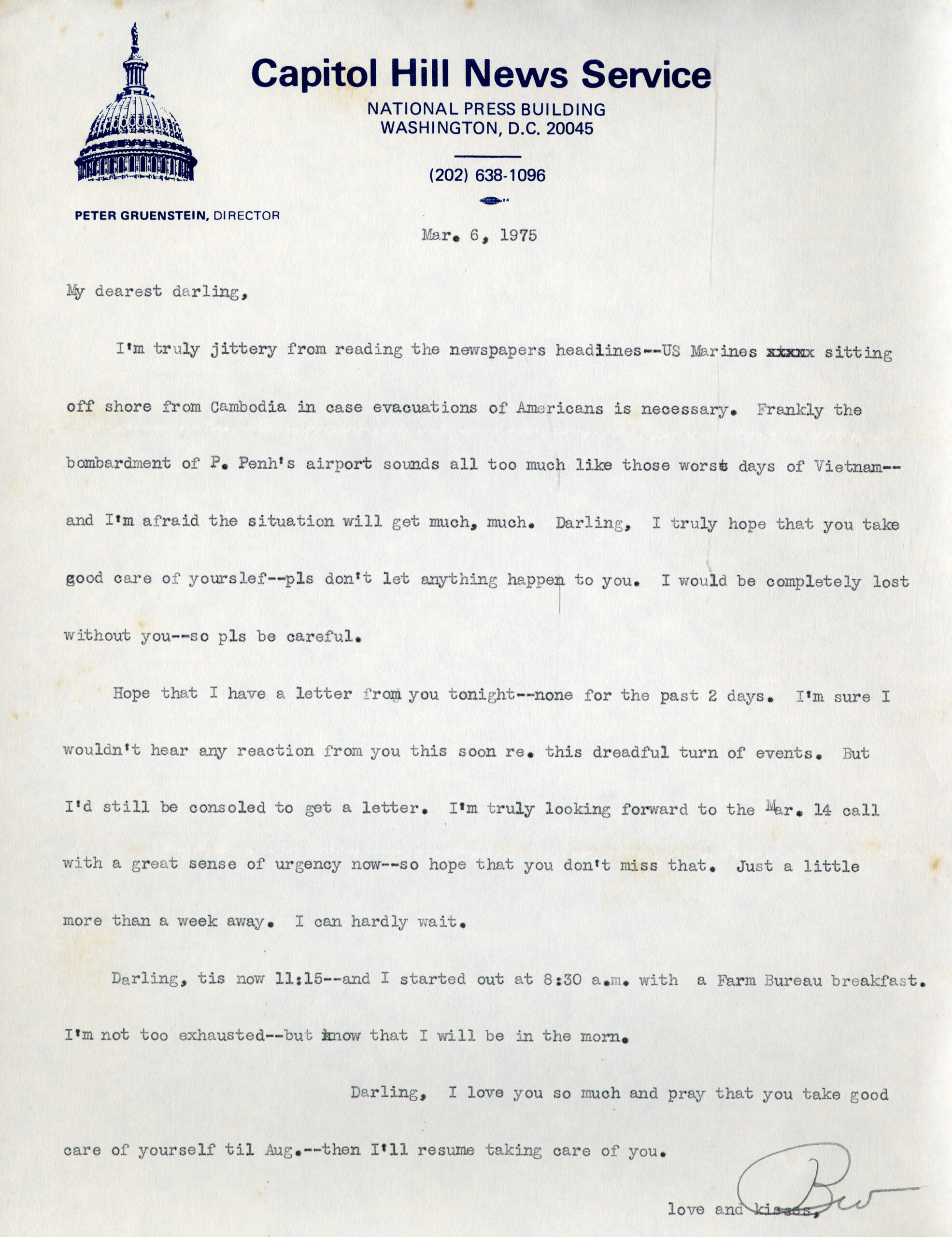
The Situation in Vietnam Deteriorates
In 1975, it became clear the South Vietnamese government would fall and the U.S. would need to evacuate all Americans and as many Vietnamese allies as possible. Beverly Keever worried about Chuck’s safety in Vietnam, and her letters from mid-1975 are often asking for updates on Chuck’s safety.
Starting an Academic Career
When Charles Keever moved back to the U.S., Beverly decided to switch to an academic career. She taught students of Northwestern University and then of the University of Maryland’s Far East Division in Okinawa.
Beverly Keever arrived at the University of Hawai’i Manoa in 1980. She first earned a master’s degree in library and information studies and then got her PhD in American Studies. Keever’s PhD thesis focused on the New York Times’ failure in covering the U.S.’s nuclear bombing and nuclear testing in the years after World War II. This thesis later became her book, News Zero: The New York Times and The Bomb, published in 2004.
University of Hawai’i Manoa teaching career
Keever taught in the Department of Journalism and Communications for 29 years, retiring in 2008. Her classes and research particularly focused on covering government and the courts, the First Amendment, and freedom-of-information issues. Keever’s interest in freedom of information led her to write reports for local papers on legislation, to participate in several journalist protests, and to speak before Hawai’i’s legislators on several bills. Keever was honored with several awards by the Society of Professional Journalists (SPJ) for her activism and teaching on freedom of information.
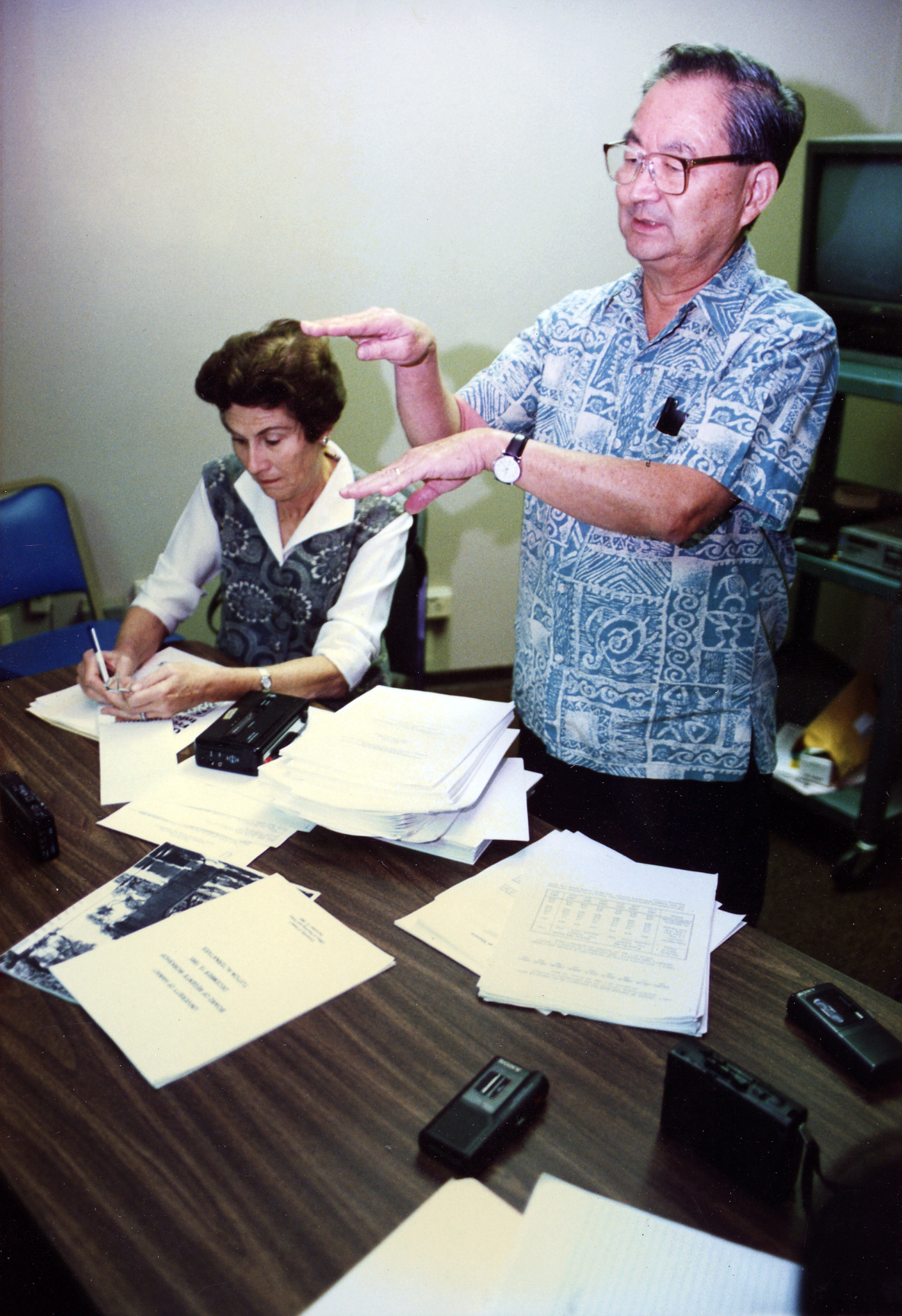
Beverly Keever's teaching
Beverly Keever taught many classes in journalism at the University of Hawai’i, especially courses on covering state and federal government. Here, Keever and Professor Kiyoshi Ikeda teach a journalism J315 course at University of Hawai’i Manoa.
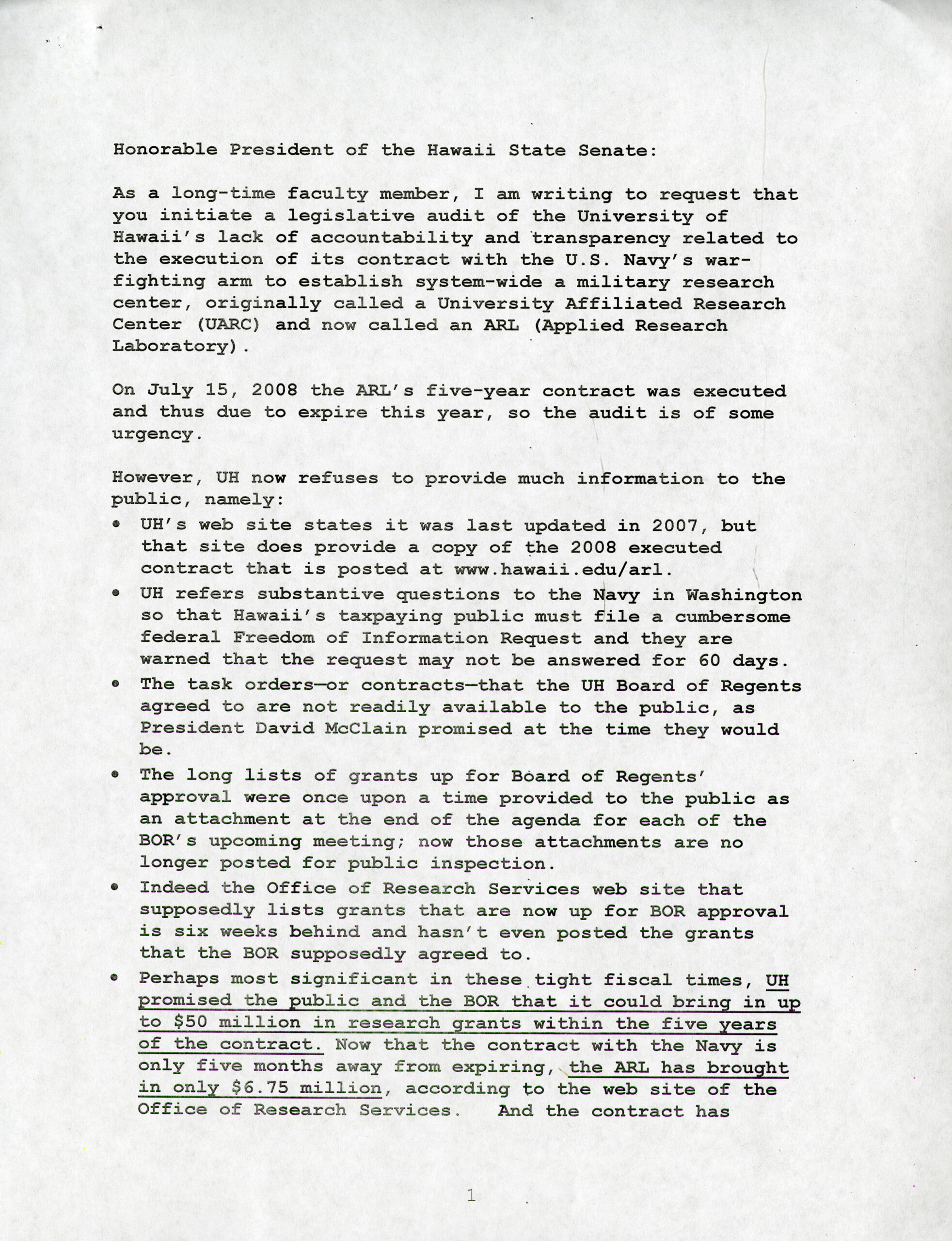
Vocal critic of the University
While a professor at the University of Hawai’i, Keever was not shy about criticizing the institution for its lack of transparency, especially when University of Hawai’i refused to release information about the pay, hiring, or severance packages given to top-level administration. In this letter to the President of the Hawai’i State Senate, Keever criticizes the University for its lack of transparency around Navy research grants.
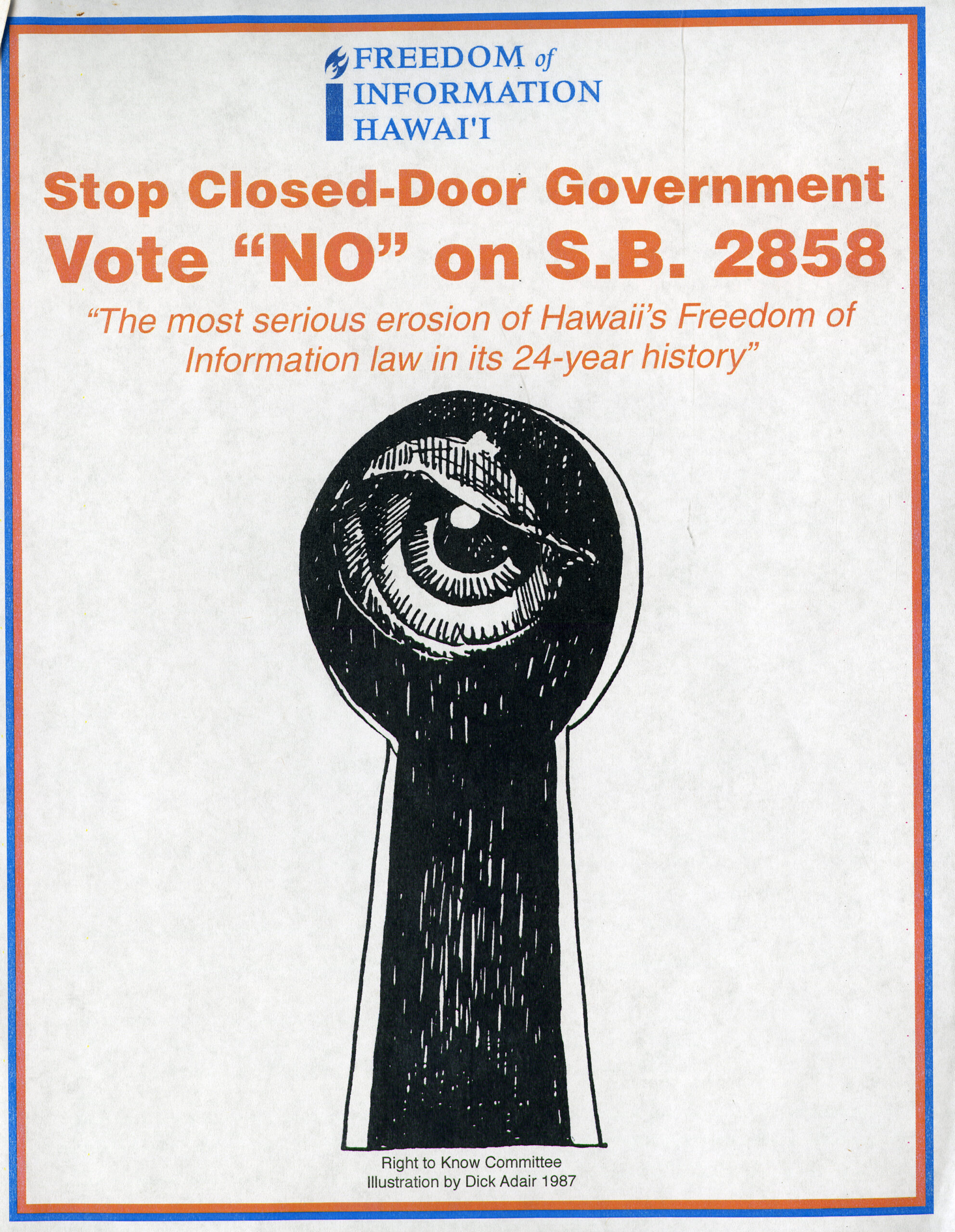
Freedom of Information Activism
Beverly Keever was deeply involved in Freedom of Information activism in Hawai’i. This poster is for the “Stop Closed Door Government, Vote ‘No’ on S.B. 2858” event at the University of Hawai’i, held by Freedom of Information Hawai’i in 1987, which Keever organized.
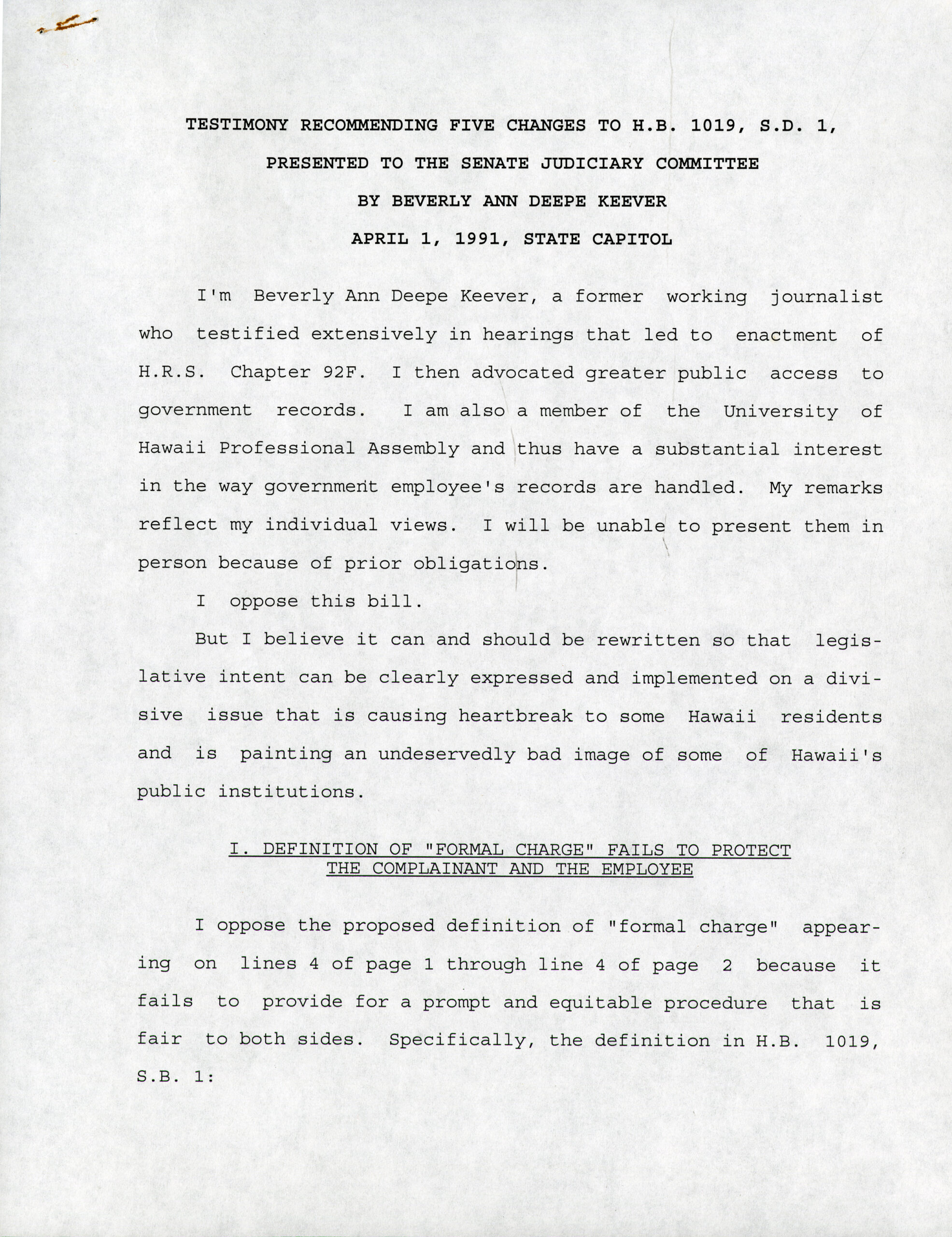
Keever testifies to government
Beverly Keever often testified in front of the Hawai’i legislature on Freedom of Information laws and other laws relating to journalistic access to government information. In 1991, she testified in opposition of H.B. 1019, which restricted who could have access to government records.
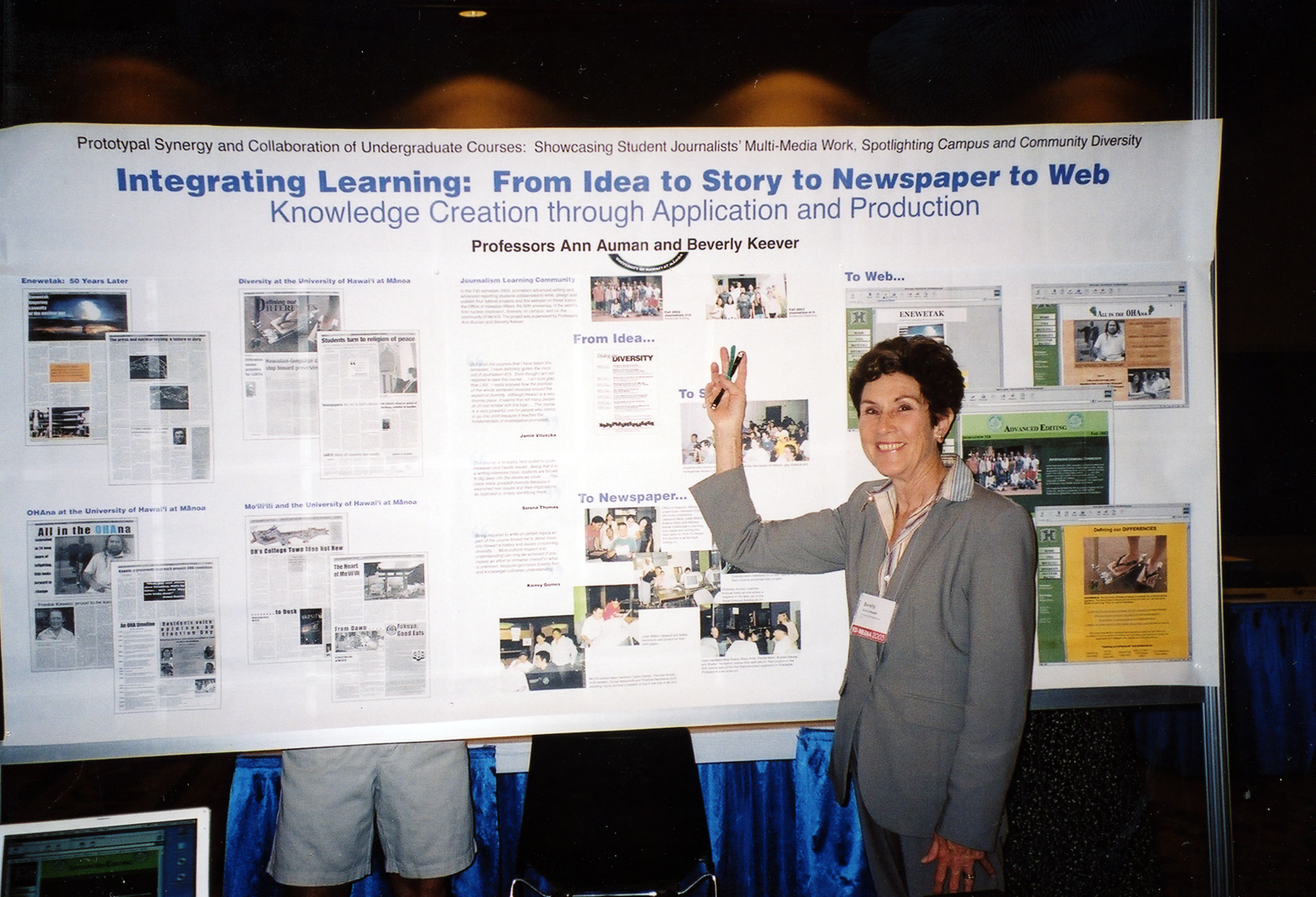
Contributing to Journalism Education
Beverly Keever was deeply interested in both teaching journalism and diversity in the journalism field. Here, Keever stands in front of a large conference poster titled “Integrating Learning: From Idea to Story to Newspaper to Web” by Professors Ann Auman and Beverly Keever, which was presented at a Diversity in Journalism event.

Keever's Curriculum Vitae
As a university professor, Keever kept track of her publications, awards, and activism in a detailed CV. This CV from around 2005 captures her University of Hawai’i career.
Books and Academic Aricles
Keever wrote many academic articles and three books: the previously mentioned News Zero: The New York Times and The Bomb, U.S. News Coverage of Racial Minorities: A Sourcebook, 1934-1996 (as co-editor, 1997), and Death Zones and Darling Spies: Seven Years of Vietnam War Reporting (2013). Written after her retirement, Death Zones and Darling Spies is Keever’s memoir of her time in Vietnam. She used her extensive records from her time in Vietnam, as well as CIA and military reports that were not available to her at the time, to write the book.
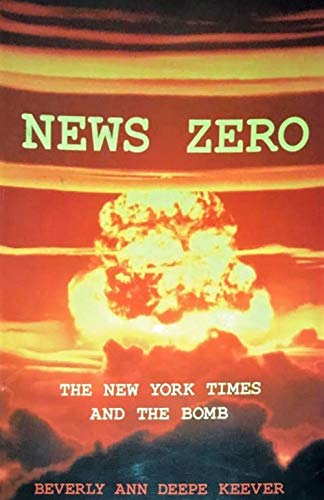
News Zero
In 2000, Keever submitted her thesis to the American Studies Department at University of Hawai’i Manoa. The dissertation discussed the coverage of nuclear testing by the New York Times, and the failures of the newspaper to properly educate the public on the dangers of plutonium. The thesis eventually became a book that was published in 2004.
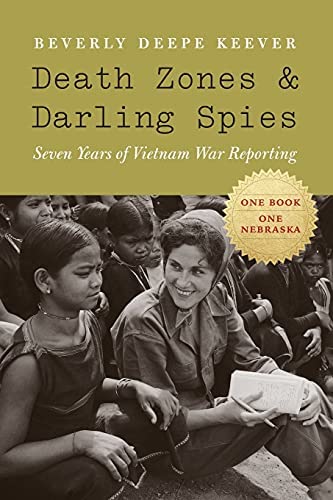
Death Zones and Darling Spies
In 2013, Keever published her memoir of her time in Vietnam, Death Zones and Darling Spies. In writing the book, Keever used her articles, her papers she had saved from Vietnam, and governemnt documents that she had not had access to at the time.

Nuclear Testing Articles
Because of her News Zero book, Keever was often asked to write about the legacy of U.S. nuclear testing. She wrote both academic articles on the subject and news articles intended for a wider audience. She has been instrumental in drawing attention to the lives of those who lived through the tests.
Previous section: Vietnam
